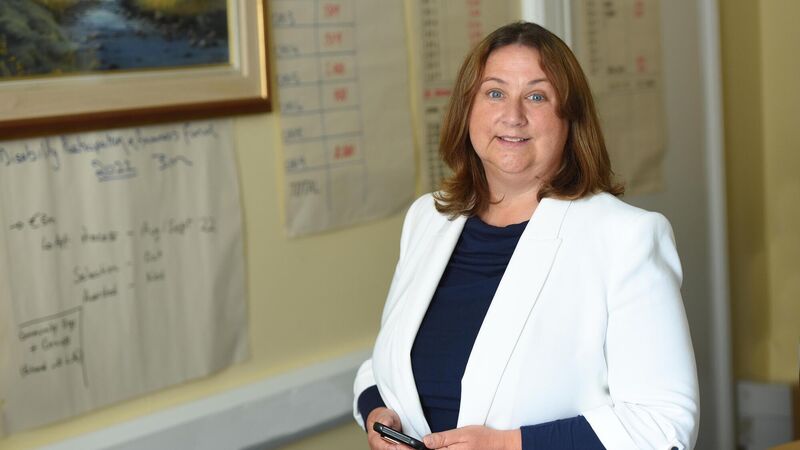Q&A: Why are section 39 workers going on strike and what effect will it have?

Minister of State for Disabilities Anne Rabbitte said talks before the Workplace Relations Commission over the summer led to a pay offer “amounting to a 5% increase in funding for pay, effective from November 2023 and with 3% backdated to April 2023”. Photo: Moya Nolan
Thousands of health and social care workers are going on strike from Tuesday — why are they doing this and what does it mean for you?
So-called 'section 39' workers are going on strike. They work in a vast number of public-facing services in areas including health and disabilities.
Services including the Irish Wheelchair Association, branches of Enable Ireland, Cheshire Ireland, Depaul Ireland, and other groups including CoAction West Cork are downing tools.
Their staff includes nurses, carers, and assistants as well as drivers, admin workers, and others.
It is usually assumed the HSE provides any supports linked to health or disabilities, but much of this work is outsourced to voluntary groups.
They get a large part of their funding from the HSE, allocated by the government, under a payment agreement set out under Section 39 of the Health Act 2004.
These organisations, often referred to collectively as section 39s, hire staff based on the funding they receive. However, their staff are not public servants and do not receive public service pensions.
Despite this, their pay was historically aligned with their HSE counterparts. In 2010, during the recession, pay cuts were imposed on section 39s and HSE staff.
Now unions, led by the Irish Congress of Trade Unions are taking action because while pay for HSE staff has been restored, funding to cover pay restoration for non-HSE staff has not materialised.
The Irish Wheelchair Association (IWA) estimates it would cost them €10m to match HSE pay scales, and have said they cannot do this unless their State funding goes up.
It is quite common to have one person with disabilities whose carers are a mix of HSE and non-HSE staff. This could mean a HSE social healthcare assistant earning €20.02 sharing work with an IWA personal assistant earning €15.82.
During the pandemic, these staff often covered each other’s hours which highlighted the pay inequalities. The pay gap also affects recruitment with nurses and other staff leaving for better-paid jobs with the HSE.
Voluntary groups say they are bleeding staff but are still expected to deliver the same level of care. They say staff vacancies are putting their services at risk.
Disability advocate Leigh Gath and others have formed a Leaders Alliance calling on the Government to take action on the worker’s calls.
She told the this week: “Come Tuesday morning, there will be a couple of hundred people who won’t be able to get out of bed, get a drink of water, not get breakfast for themselves. This is really concerning.”
Minister of State for Disabilities Anne Rabbitte said talks before the Workplace Relations Commission over the summer led to a pay offer “amounting to a 5% increase in funding for pay, effective from November 2023 and with 3% backdated to April 2023”.
This was rejected by unions as not bridging the gap.
The Department of Children, Equality, Disability, Integration and Youth is in talks with the voluntary groups, she told the Dáil on Thursday. The HSE and Tusla have been asked to prepare contingency plans.









